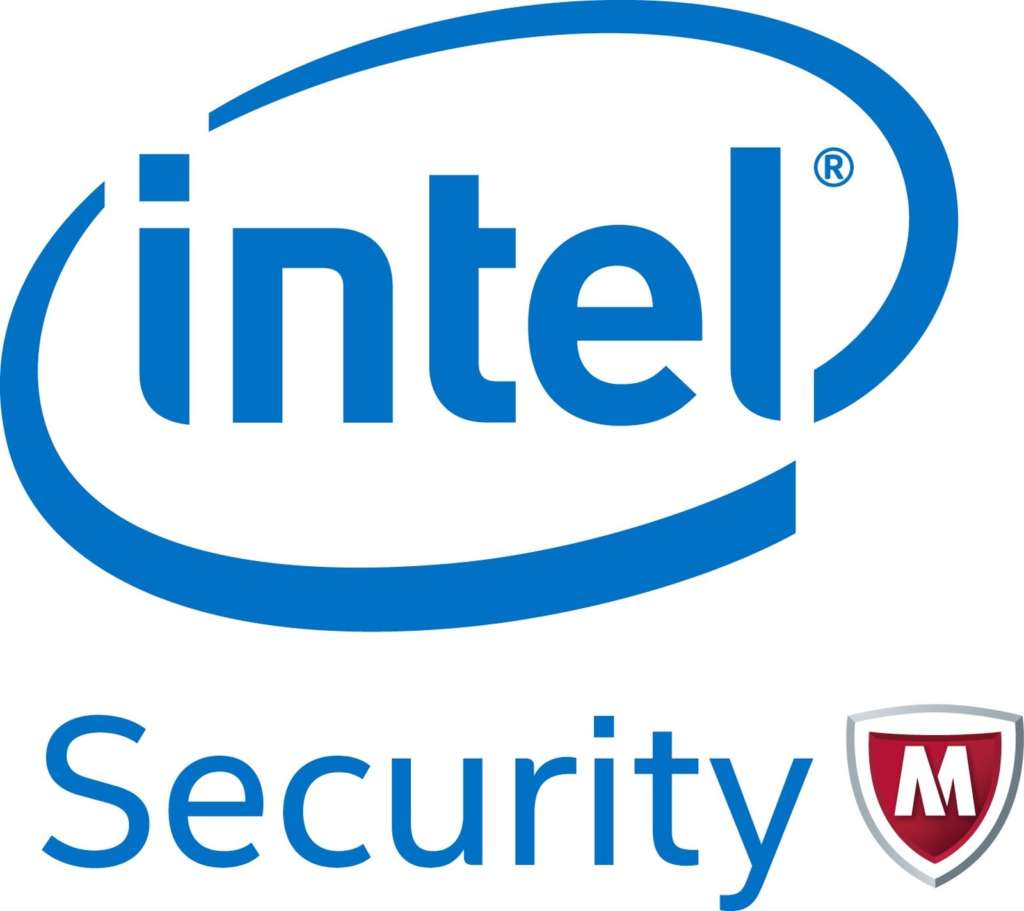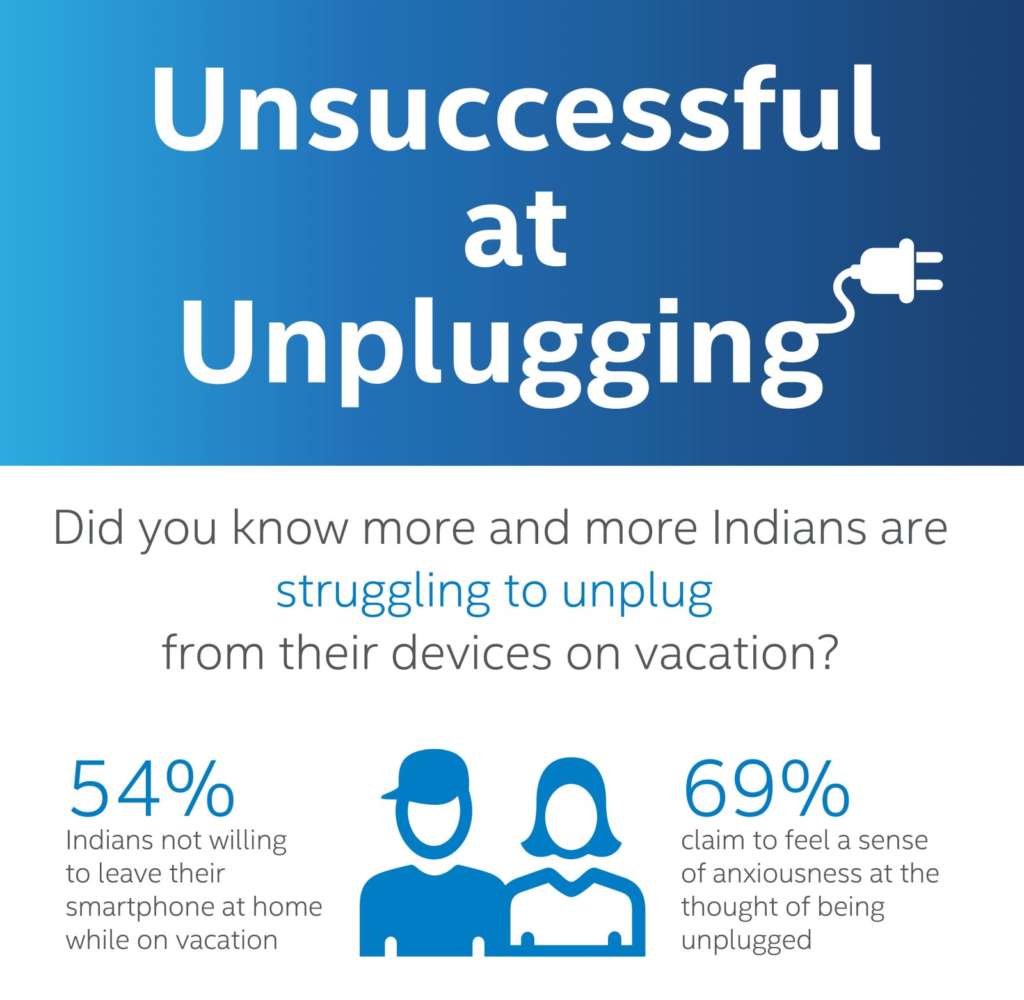
Intel Security released findings from its new study – Digital Detox: Unplugging on Vacation. The research was carried out to understand the ways consumers stay digitally connected while travelling. It also highlighted the ways in which consumers unknowingly be putting their personal identity and devices at risk. The Study indicates that India defines being unplugged as having ‘no electronics usage at all. While almost two-thirds of Indians claimed to have gone on vacation in the past year with the intention to be unplugged.
The research was conducted between 18th–29th March, 2016 via an online questionnaire distributed to 1,423 people in India between the age 21 and 54. Global study was conducted across 13,960 consumers between the ages of 21 to 54, evenly split by gender.
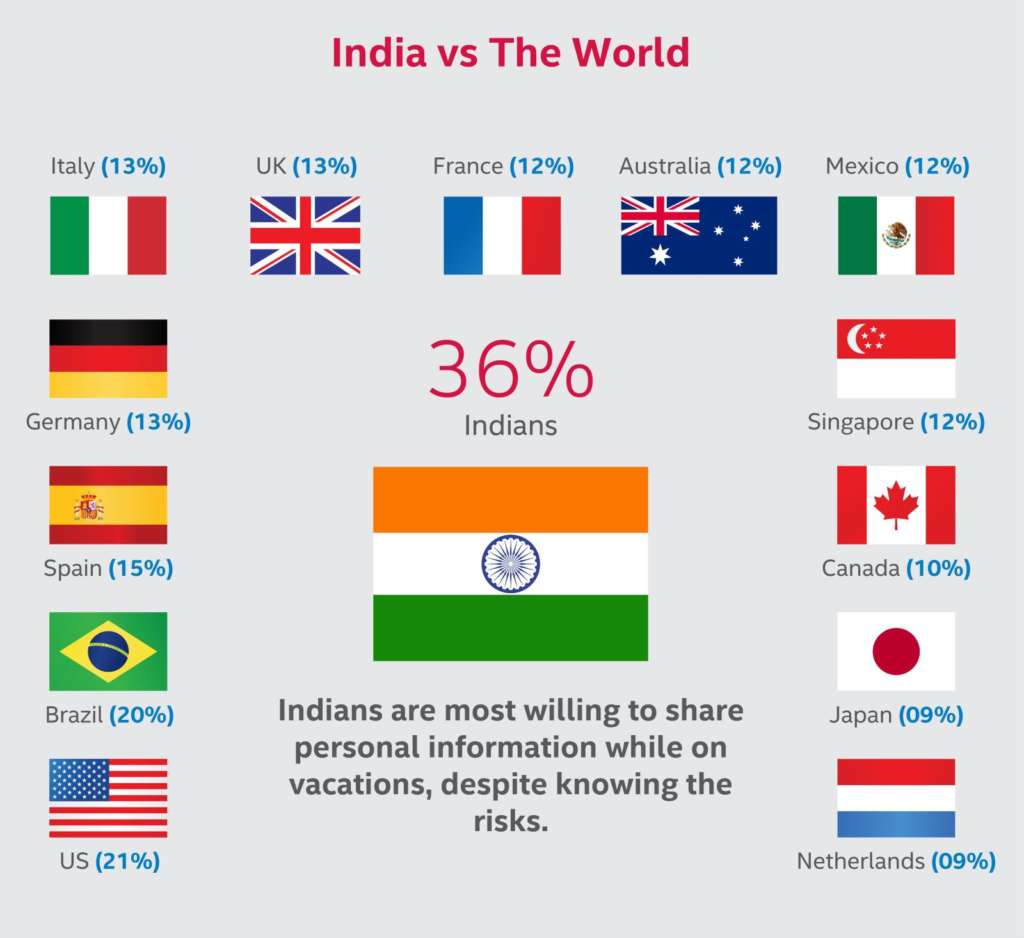
Major findings from the India study as follows:
- Vacay-Zen? Not if connecting to the internet while on vacation:
- 84% of Indians connect to the internet while they are on vacation
- Almost three out of four Indians (74%) say that they would want to be unplugged on a week-long vacation if work obligations were not a factor
- Majority of Indians (54%) are not willing to leave their smartphone at home while on vacation and Indians fared second worst globally (only Singapore was ahead at 42%) in being able to abstain from social media while on vacation at 43%
- Communication with the family (57%) or being available in case of emergencies (46%) are the main reasons that end up keeping people from being unplugged during vacations
Indians need to be vigilant:
- Indians (31%) that travel, access or share sensitive information while using public Wi- Fi, which is highest amongst the 14 countries surveyed
Mexico (19%), Brazil (18%), Spain (17%), Singapore (16%), US (15%), Italy (15%), Canada (11%), France (11%), Germany (11%), Australia (10%), Japan (10 %), UK (10%), and Netherlands (09%)
- Indians lead their global counterparts in willingly sharing personal information such as credit card number or login name/password. More than one out of three Indians (36%) shared their personal data even when they realize that this will make them vulnerable, which is highest amongst the 14 countries surveyed
US (21%), Brazil (20%), Spain (15%), Germany (13%), Italy (13%), UK (13%), France (12%), Australia (12%), Mexico (12%), Singapore (12%), Canada (10%), Japan (09%), and Netherlands (09%)
- 37% of Indians could not last a day on vacation without checking social media This is second only to Japan (45%) when compared globally
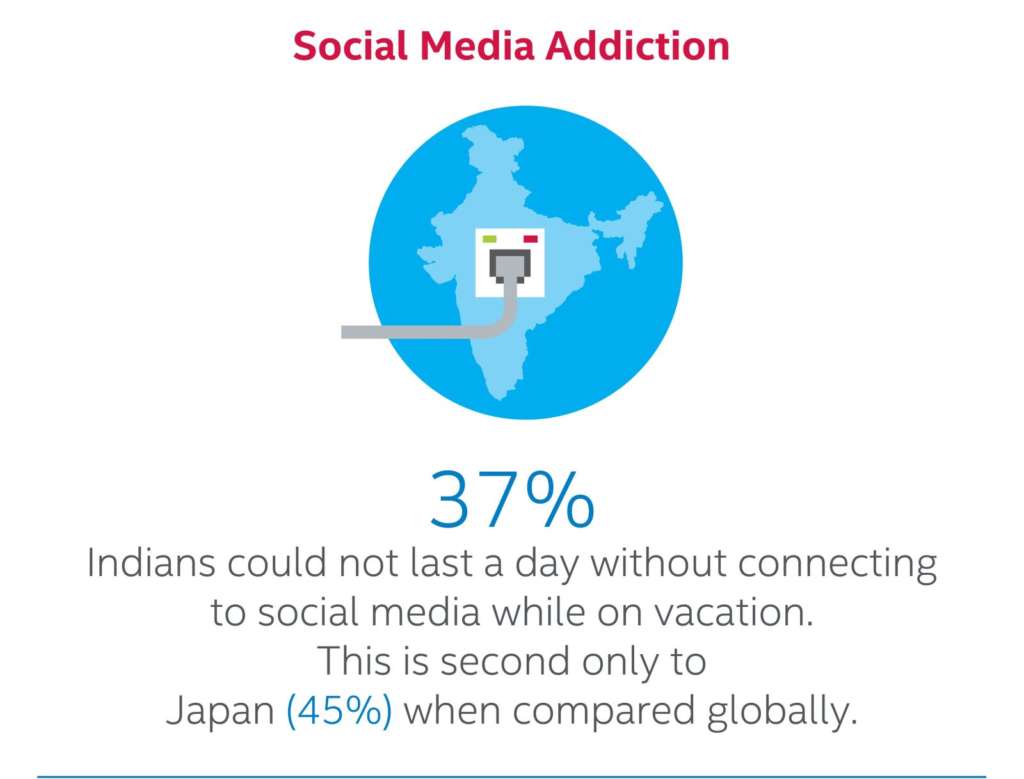
Tips to Minimize Your Travel Security Risks:
- Create Social Walls: Waiting in airports can be quite boring and often this can lead to posting updates from mobile device. Whether it’s your location or that selfie where your hair looks just right, criminals are more able to monitor your whereabouts via social activity and take advantage of you when you have the weakest protection.
- Be Careful When You Share: We love to share our experiences with friends and family via social media, but it’s important to not indicate publicly where or when you’ll be taking that relaxing vacation. Wait until you return home before posting all about it; otherwise, you could leave yourself open to would-be thieves who want to know when your home will be vacant.
- Limit Wi-Fi and Bluetooth Use: Data can be expensive, but switching on Bluetooth and Wi-Fi when out and about can be a recipe for disaster. Connecting to unprotected Wi-Fi and Bluetooth devices can expose your personal information to a cybercriminal. You should be especially careful when exchanging payment information. With this in mind, make sure to update your Bluetooth and Wi-Fi history by removing previously ‘remembered’ wireless networks, like ‘cafewifi.’
- Check and Monitor Your Accounts: Keep an eye out for suspicious activity in your bank account history. If you aren’t meticulous about monitoring your activity, a criminal could have access to your accounts for quite some time before you are aware.
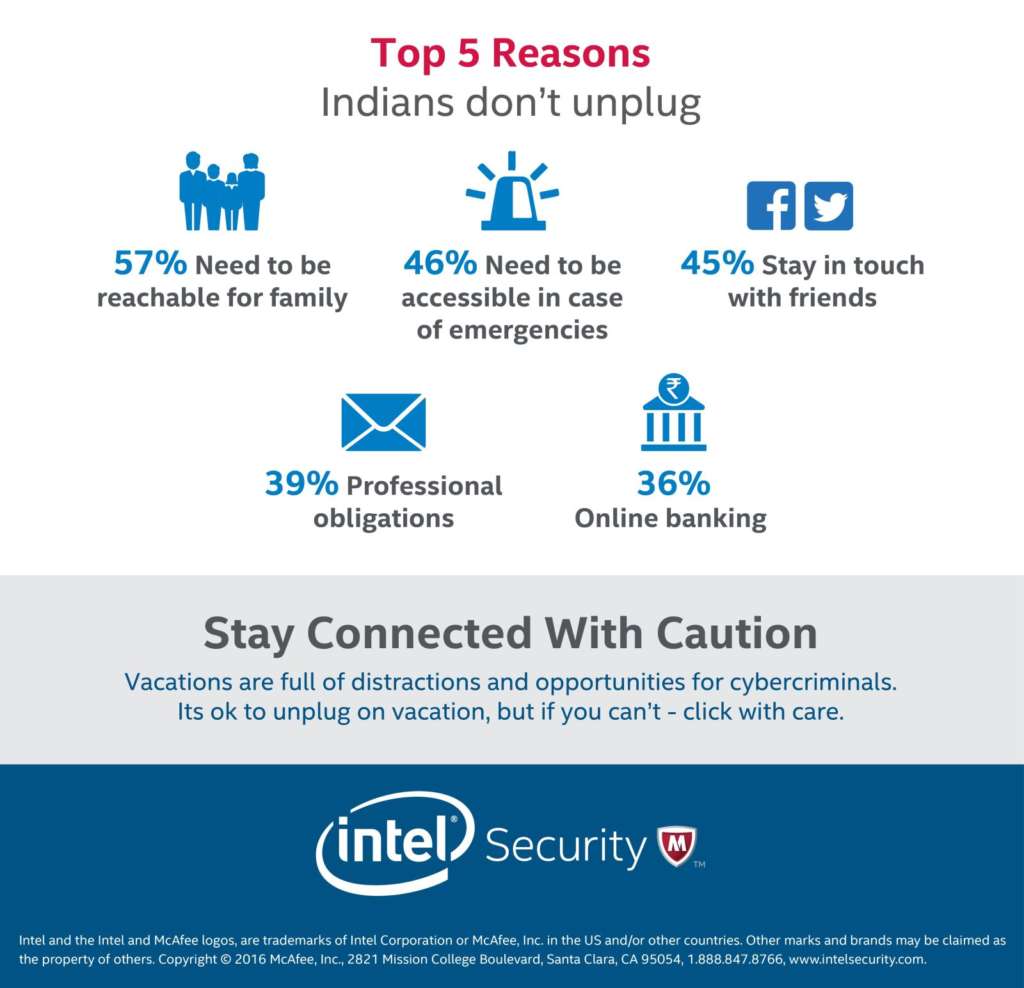
Commenting on the research, Venkat Krishnapur, Head of R&D Operations for Intel Security’s India Development Centre said,”Findings from the survey indicate that a huge majority of Indians (84%) connect to the internet while on vacation. While doing so, they often access and share sensitive information without considering the potential cyber risks of divulging credit cards details, works mails, and personal information on unsecured public Wi-Fi. Through this survey, we wanted to raise awareness about the need to adopt safe digital habits and share security measures to prevent personal information from being compromised while travelling.”

